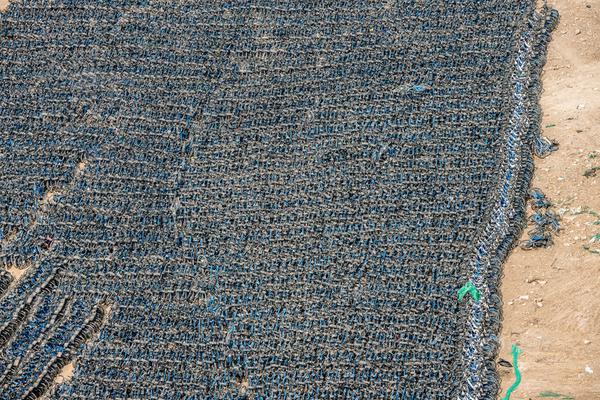
1. The five functions of the operating system are processor management, memory management, device management, file management and job management. Processor management The most basic function of processor management is to process interrupt events. After configuring the operating system, various events can be processed.
2. The main function of the computer operating system is process management, and its work is mainly process scheduling. In the case of a single user and a single taskNext, the processor is only monopolized by one user's task, and the process management work is very simple.
3. Operating System (abbreviation: OS) is a group of interrelated system software programs that supervise and control computer operation, use and run hardware, software resources and provide public services to organize user interaction.
4. Five major management functions of the operating system: (1) Job management: including tasks, interface management, human-computer interaction, graphical interface, voice control and virtual reality, etc. ( 2) File management: also known as information management. ( 3) Storage management: The essence is the management of storage "space", which mainly refers to the management of the main memory.
Any information system has five basic functions, namely: information collection and recording (input); information storage; information processing; information transmission; information output .
According to the functional introduction of the information system, the information system has five basic functions: input, storage, processing, output and control. Different functions have different functions, such as input function: the input function of the information system is determined by the purpose to be achieved by the system, the ability of the system and the permission of the information environment.
Five basic functions of the information system: input, storage, processing, output and control. Input function: The input function of the information system is determined by the purpose to be achieved by the system, the ability of the system and the permission of the information environment.Storage function: Storage function refers to the ability of the system to store various information and data. Mainly including: statistical functions.
The operating system has five functions: processor management: mainly controls and manages the work of the CPU. Storage management: mainly allocate and manage memory. Device management: mainly manage basic input and output devices. File management: responsible for the organization, storage, operation and protection of computer files.
The functions of the computer operating system include: processor management, memory management, device management, file management, job management and other functional modules. Processor management. The most basic function of processor management is to handle interrupt events. The processor can only detect interrupt events and generate interrupts and cannot process them.
The main function of the computer operating system is process management, and its main work is process scheduling. In the case of a single user and a single task, the processor is only monopolized by one user's task, and the work of process management is very simple.
The main functions of the operating system are process and processor management, job management, storage management, device management and file management, as follows: process and processor management. Because the execution of the program must rely on the processor, only one program flow can be processed and executed at any time. Homework management.
I) Processor management The most basic function of processor management is to handle interrupt events. The processor can only detect interrupt events and generate interrupts, and cannot handle these interrupt events. After configuring the operating system, all types of events can be handled.Another function of processor management is processor scheduling.
Five management functions of the operating system: job management: including tasks, interface management, human-computer interaction, graphical interface, voice control and virtual reality, etc. File management: also known as information management. Storage management: The essence is the management of storage "space", which mainly refers to the management of the main memory.

The storage management function of the operating system is to manage memory resources. It mainly realizes memory allocation and recovery, storage protection and memory expansion. The device management of the device management operating system is responsible for allocating and recycling external devices, and controlling external devices to operate according to the requirements of user programs.
The functions of the computer operating system include: processor management, memory management, device management, file management, job management and other functional modules. Processor management. The most basic function of processor management is to handle interrupt events. The processor can only detect interrupt events and generate interrupts and cannot process them.
The five functions of the operating system are processor management, memory management, device management, file management and job management.Processor management The most basic function of processor management is to process interrupt events. After configuring the operating system, various events can be processed.
Hearthstone Arena Tier List-APP, download it now, new users will receive a novice gift pack.
1. The five functions of the operating system are processor management, memory management, device management, file management and job management. Processor management The most basic function of processor management is to process interrupt events. After configuring the operating system, various events can be processed.
2. The main function of the computer operating system is process management, and its work is mainly process scheduling. In the case of a single user and a single taskNext, the processor is only monopolized by one user's task, and the process management work is very simple.
3. Operating System (abbreviation: OS) is a group of interrelated system software programs that supervise and control computer operation, use and run hardware, software resources and provide public services to organize user interaction.
4. Five major management functions of the operating system: (1) Job management: including tasks, interface management, human-computer interaction, graphical interface, voice control and virtual reality, etc. ( 2) File management: also known as information management. ( 3) Storage management: The essence is the management of storage "space", which mainly refers to the management of the main memory.
Any information system has five basic functions, namely: information collection and recording (input); information storage; information processing; information transmission; information output .
According to the functional introduction of the information system, the information system has five basic functions: input, storage, processing, output and control. Different functions have different functions, such as input function: the input function of the information system is determined by the purpose to be achieved by the system, the ability of the system and the permission of the information environment.
Five basic functions of the information system: input, storage, processing, output and control. Input function: The input function of the information system is determined by the purpose to be achieved by the system, the ability of the system and the permission of the information environment.Storage function: Storage function refers to the ability of the system to store various information and data. Mainly including: statistical functions.
The operating system has five functions: processor management: mainly controls and manages the work of the CPU. Storage management: mainly allocate and manage memory. Device management: mainly manage basic input and output devices. File management: responsible for the organization, storage, operation and protection of computer files.
The functions of the computer operating system include: processor management, memory management, device management, file management, job management and other functional modules. Processor management. The most basic function of processor management is to handle interrupt events. The processor can only detect interrupt events and generate interrupts and cannot process them.
The main function of the computer operating system is process management, and its main work is process scheduling. In the case of a single user and a single task, the processor is only monopolized by one user's task, and the work of process management is very simple.
The main functions of the operating system are process and processor management, job management, storage management, device management and file management, as follows: process and processor management. Because the execution of the program must rely on the processor, only one program flow can be processed and executed at any time. Homework management.
I) Processor management The most basic function of processor management is to handle interrupt events. The processor can only detect interrupt events and generate interrupts, and cannot handle these interrupt events. After configuring the operating system, all types of events can be handled.Another function of processor management is processor scheduling.
Five management functions of the operating system: job management: including tasks, interface management, human-computer interaction, graphical interface, voice control and virtual reality, etc. File management: also known as information management. Storage management: The essence is the management of storage "space", which mainly refers to the management of the main memory.

The storage management function of the operating system is to manage memory resources. It mainly realizes memory allocation and recovery, storage protection and memory expansion. The device management of the device management operating system is responsible for allocating and recycling external devices, and controlling external devices to operate according to the requirements of user programs.
The functions of the computer operating system include: processor management, memory management, device management, file management, job management and other functional modules. Processor management. The most basic function of processor management is to handle interrupt events. The processor can only detect interrupt events and generate interrupts and cannot process them.
The five functions of the operating system are processor management, memory management, device management, file management and job management.Processor management The most basic function of processor management is to process interrupt events. After configuring the operating system, various events can be processed.
 Casino Plus GCash login
Casino Plus GCash login
763.85MB
Check Europa League app
Europa League app
385.53MB
Check Casino Plus app
Casino Plus app
652.23MB
Check UEFA Champions League live
UEFA Champions League live
665.55MB
Check Champions League
Champions League
293.36MB
Check DigiPlus stock
DigiPlus stock
945.88MB
Check Arena plus APK
Arena plus APK
599.23MB
Check Champions League
Champions League
967.58MB
Check App to watch Champions League live free
App to watch Champions League live free
159.99MB
Check Arena Plus login
Arena Plus login
683.32MB
Check Hearthstone arena deck Builder
Hearthstone arena deck Builder
941.56MB
Check TNT Sports
TNT Sports
938.65MB
Check DigiPlus stock
DigiPlus stock
836.87MB
Check Bingo Plus stock
Bingo Plus stock
258.54MB
Check UEFA Europa League
UEFA Europa League
767.59MB
Check Casino Plus app
Casino Plus app
433.54MB
Check DigiPlus stock
DigiPlus stock
968.49MB
Check Free sports events uefa champions league app android
Free sports events uefa champions league app android
971.48MB
Check bingo plus update today
bingo plus update today
169.19MB
Check Arena plus APK
Arena plus APK
189.64MB
Check Bingo Plus stock
Bingo Plus stock
655.84MB
Check UEFA Europa League
UEFA Europa League
289.46MB
Check Hearthstone Arena Tier List
Hearthstone Arena Tier List
212.85MB
Check Champions League
Champions League
741.83MB
Check UEFA live free
UEFA live free
832.95MB
Check UEFA Champions League live streaming free
UEFA Champions League live streaming free
383.48MB
Check Hearthstone arena
Hearthstone arena
824.14MB
Check Casino Plus
Casino Plus
996.73MB
Check Casino Plus free 100
Casino Plus free 100
778.87MB
Check Walletinvestor digi plus
Walletinvestor digi plus
395.32MB
Check Hearthstone Arena Tier List
Hearthstone Arena Tier List
627.62MB
Check UEFA Champions League standings
UEFA Champions League standings
142.88MB
Check Casino Plus login register
Casino Plus login register
147.71MB
Check UEFA Champions League live
UEFA Champions League live
835.67MB
Check casino plus free 100
casino plus free 100
986.63MB
Check Hearthstone arena class win rates reddit
Hearthstone arena class win rates reddit
875.54MB
Check
Scan to install
Hearthstone Arena Tier List to discover more
Netizen comments More
2669 Casino Plus login register
2025-02-11 12:44 recommend
1744 Hearthstone Arena Tier List
2025-02-11 11:58 recommend
516 UEFA Champions League live streaming free
2025-02-11 11:48 recommend
1711 Casino Plus
2025-02-11 11:40 recommend
2293 European Cup live
2025-02-11 11:35 recommend